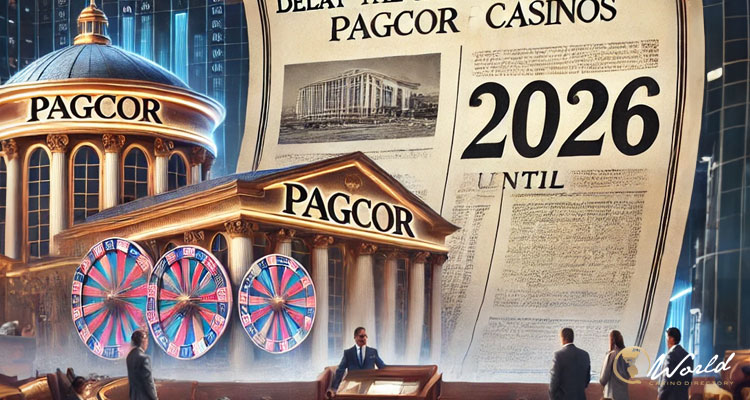The planned privatization of the Philippine Amusement and Gaming Corporation (Pagcor) casinos under the Casino Filipino brand has been delayed until 2026. According to Pagcor chairman Alejandro Tengco, the delay is largely due to necessary amendments to the agency’s charter. Initially scheduled for mid-2025, the privatization will now be postponed by at least a year, pushing the process to 2026.
In recent statements to the media, Tengco outlined the steps required before the privatization can move forward. “We still have to amend the charter of Pagcor. So next year will be allocated for the amendments,” he told reporters, according to GGRAsia. The remarks highlight the legal and logistical challenges the agency must navigate before moving ahead with its privatization goals.
Complexity of the Privatization Process
The privatization of Pagcor’s Casino Filipino venues is a significant move that has garnered attention across the country. However, Tengco acknowledged that the process is proving more complicated than initially anticipated. “There are a lot of things to do. It’s not as easy as we thought it would be. And our priorities include modernisation, the lessors,” he said, pointing to the extensive preparation needed before the sale of these casinos can occur.
Tengco also indicated that the potential revenue from the privatization may be lower than previously expected. He estimated that the sale of the Casino Filipino venues would generate around PHP50 billion (approximately US$891.3 million). This figure is a reduction from the PHP60 billion projection mentioned earlier, which itself was a decrease from the original PHP80 billion estimate.
“Initially, I thought it was going to be big. But unfortunately, I realized that we do not own any property, we’re just leasing,” Tengco explained. His comments underscore the complexity of the privatization process, as Pagcor operates many of its gaming venues on leased properties rather than owning the land outright.
Modernization Ahead of Sale
Ahead of the planned privatization, Pagcor has initiated a series of modernization efforts, including a major upgrade to Casino Filipino venues. Tengco revealed that by mid-September, nearly 2,000 “new and modern slot machines” will be installed in Pagcor-operated casinos. This upgrade is part of a broader effort to enhance the appeal and value of these venues before they are put up for sale.
In addition to modernizing casino facilities, Pagcor is also planning to establish a gaming academy to help professionalize the local gaming industry. Tengco emphasized that the academy will address the growing demand for skilled professionals within the sector. “We aim to do this by forging partnerships with Asian gaming education providers to create a consortium that caters not only to the Philippine workforce but also to all who wish to build a career in gaming in other jurisdictions,” he said.
Future Reductions in GGR Remittance Rates
In a separate development, Tengco also announced that Pagcor is set to further reduce the gross gaming revenue (GGR) remittance rate for online and on-site betting platforms. This change is expected to take effect in January of the coming year. Although specific details regarding the new rates were not provided, the reduction is part of an ongoing effort to streamline operations and make the gaming industry more attractive to investors.
The upcoming changes to the GGR remittance rate, coupled with the ongoing modernization of gaming facilities and the planned privatization of Casino Filipino venues, signal a period of transformation for the Philippine gaming industry. As Pagcor continues to navigate these changes, it remains focused on enhancing the country’s gaming infrastructure and maintaining its position as a key player in the Asian gaming market.
(Except for the headline, this story has not been edited by PostX News and is published from a syndicated feed.)

